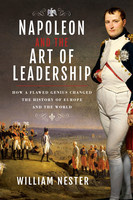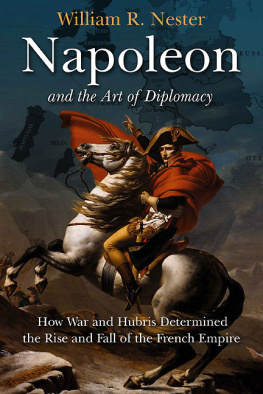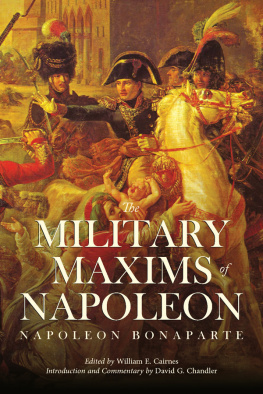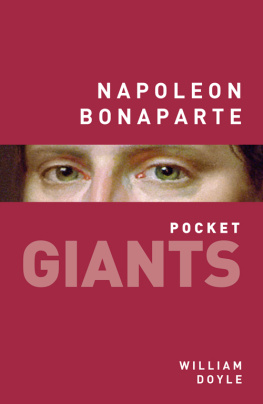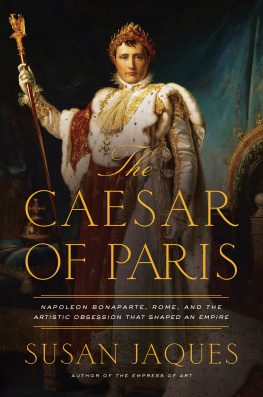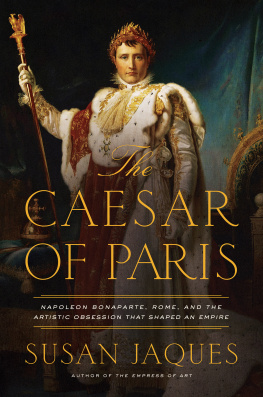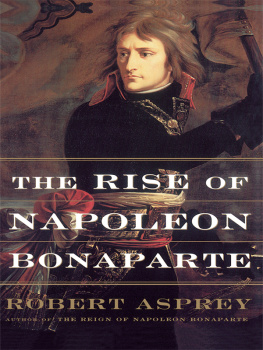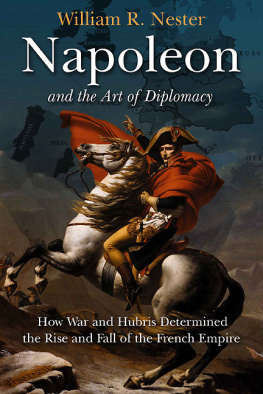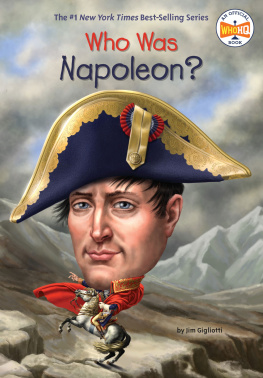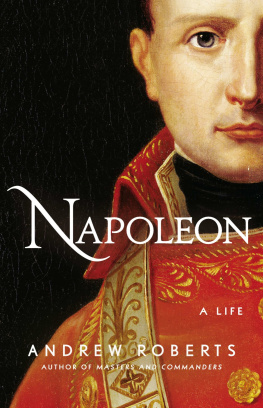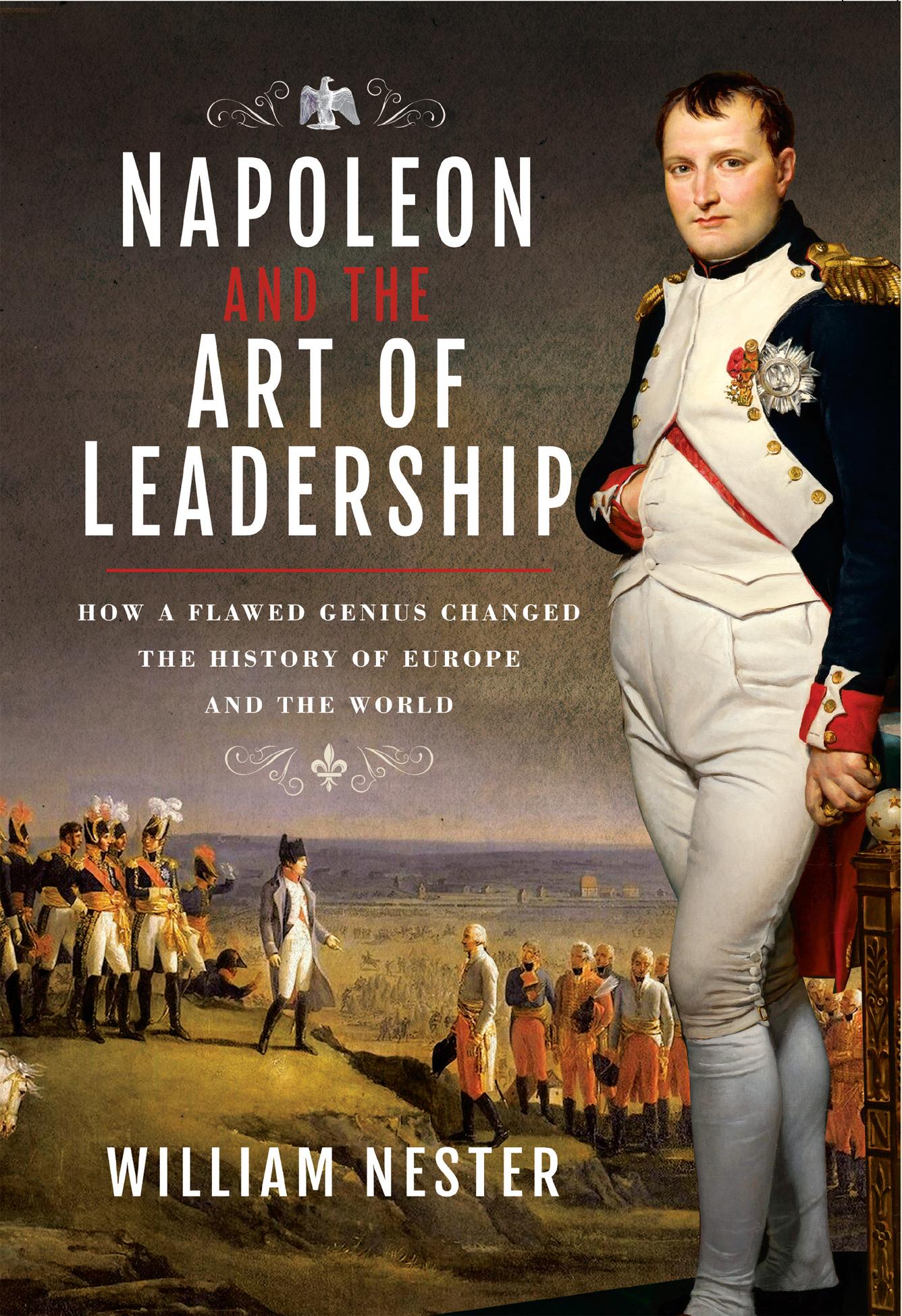
NAPOLEON AND THE ART OF LEADERSHIP
NAPOLEON AND THE ART OF LEADERSHIP
HOW A FLAWED GENIUS CHANGED THE HISTORY OF EUROPE AND THE WORLD
William Nester
Foreword by
John Grehan
First published in Great Britain in 2020 by
FRONTLINE BOOKS
an imprint of Pen & Sword Books Ltd,
47 Church Street, Barnsley, S.Yorkshire, S70 2AS
Copyright William Nester 2020
The right of William Nesterto be identified as the author of this workhas been asserted by him in accordance with the Copyright, Designs and Patents Act 1988.
ISBN: 978 1 52678 277 9
eISBN: 978 1 52678 278 6
Mobi ISBN: 978 1 52678 279 3
All rights reserved. No part of this publication may be reproduced, stored in or introduced into a retrieval system, or transmitted, in any form, or by any means (electronic, mechanical, photocopying, recording or otherwise) without the prior written permission of the publisher. Any person who does any unauthorized act in relation to this publication may be liable to criminal prosecution and civil claims for damages.
CIP data records for this title are available from the British Library
For more information on our books, please visit or write to us at the above address.
Pen & Sword Books Ltd incorporates the imprints of Pen & Sword Archaeology, Atlas, Aviation, Battleground, Discovery, Family History, History, Maritime, Military, Naval, Politics, Social History, Transport, True Crime, Claymore Press, Frontline Books, Praetorian Press, Seaforth Publishing and White Owl
For a complete list of Pen and Sword titles please contact
PEN & SWORD LTD
47 Church Street, Barnsley, South Yorkshire, S70 2AS, England
E-mail:
Or
PEN AND SWORD BOOKS
1950 Lawrence Rd, Havertown, PA 19083, USA
E-mail:
Acknowledgements
I want to express my deep gratitude and pleasure at having had the opportunity to work with the outstanding Frontline editorial team of Lisa Hoosan, Stephen Chumbley, John Grehan, and Martin Mace, who were always as kind as they were I am especially grateful to Stephen for accenting all the French names and words, and to Martin for finding and captioning all the wonderful illustrations.
I would also like to thank Jason Petho for his wonderful maps.
List of Illustrations
Twenty-seven-year-old General Bonaparte would, in less than eight years time, become Emperor of the French and the most powerful man in Europe.
Bianchis lithograph of a young Captain Bonaparte explaining to senior officers how the Siege of Toulon could be won.
Pont de Lodi, 10 Mai 1796 by Charles Etienne Pierre Motte.
Thomas Charles Naudets drawing of Bonaparte leading his troops across the bridge at Arcole in November 1796.
General Bonaparte at Lanato in 1796 by Lordereau.
Bonaparte in Egypt.
Bonaparte reviewing his Consular Guard.
Bonaparte leading his troops at the Battle of Marengo.
Bonaparte in his full Consular regalia.
The displays erected to celebrate the coronation of Napoleon Bonaparte and Josephine as Imperial majesties.
Even Napoleons divorce from Josephine was an elaborate affair full of poignancy and high drama.
A portrait of Napoleon drawn just before he embarked on his disastrous Russian campaign.
J. Baillies Napoleon and Son .
A scene depicting Napoleons triumphant return to Paris in March 1815.
Napoleon retreating after the Battle of Waterloo.
Napoleon on the deck of HMS Bellerophon in Plymouth Sound awaiting his banishment to St Helena.
Foreword
L eadership techniques have long been studied and are well known. Indeed, many who will read this book will have attended man-management courses and practised and role-played all manner of workplace and possibly even battlefield scenarios. Yet we have all seen that regardless of how many skills or techniques have been taught and understood, some people are simply, seemingly innately, better leaders than others and no finer example of this can be found than Napoleon Bonaparte.
Adored by vast numbers who followed him unquestioningly, even enthusiastically, into battle, he was also loathed by many and the royalist flame was never wholly extinguished in some regions of France during his period in power. The imperial crown sat uncertainly upon his far from regal head and remained there only as long as his army stood victorious on the battlefield.
Napoleon, though, certainly had the common touch. He made a point of knowing and remembering, the names of some of his grognards of the Old Guard which had a tremendous effect on their loyalty, but in the days before the advent of mass communications the only other means by which he could influence people was through the issuing of highly evocative bulletins. Through these he could appeal to the French peoples growing spirit of nationalism and of their quest for the ever-elusive glorie . Of course, not everyone was convinced with Napoleons stirring calls to arms in the advancement or defence of La patrie and the phrase to lie like a bulletin was common currency. Yet, by appealing to French hearts rather than French heads, he was able to carry the nation with him, creating, at least in part, a meritocracy which gave perhaps a little more than just a passing nod to liberty, equality and fraternity.
Possibly the most obvious example of this was his creation of the Lgion dhonneur , the highest award which could be bestowed upon an individual in France which, at least in theory, was open to anyone from whatever rank in the military or society whom it was felt merited such a distinction. The reasoning behind the creation of this order of merit was explained by Napoleon when the value of such medals was questioned: You call these baubles, well, it is with baubles that men are led Do you think that you would be able to make men fight by reasoning? Never. That is good only for the scholar in his study. The soldier needs glory, distinctions, rewards.
Napoleon rose to become the most powerful man in Europe and the methods by which he achieved such a status and how he wielded the power he had amassed, is the subject of William Nesters insightful study. Rather than merely retelling the rise and fall of historys most enigmatic figure, as so many books have in the past, Professor Nestor has undertaken an investigation into not just the methods Napoleon adopted in his quest for power, but how he employed that power as much for the good of the sans-culottes as for the perpetuation of the Bonaparte dynasty.
In this study, William Nester makes his case by quoting Napoleons very own highly revealing words. The Corsican Napoleon struggled to master the French language, his spelling was poor and his handwriting barely legible, yet William Nester has found and pieced together a huge number of the great mans words and those ascribed to him by others.
For those unfamiliar with Napoleon and his place in history who are looking to understand how the son of an Italian lawyer from an island in the Mediterranean became the Emperor of the French and the most feared as well as the most admired man in Europe, there is no better place to look than in here. For those who know that story well, this book is a lavish indulgence an opportunity to luxuriate in the sharp phrases and the sharp tongue of Napoleon Bonaparte.
Next page
